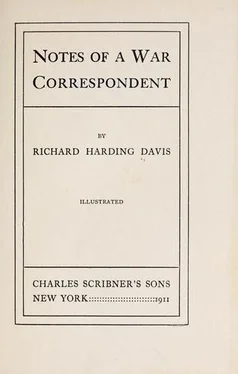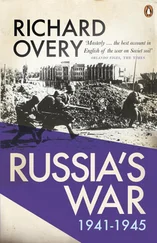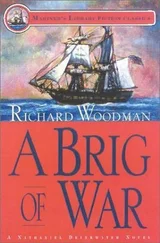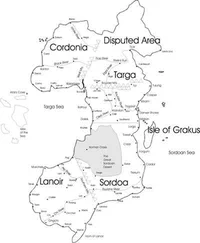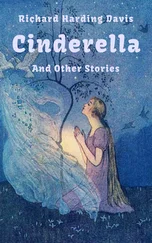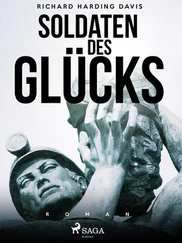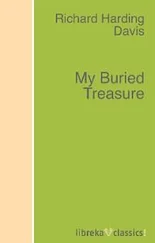Richard Davis - Notes of a War Correspondent
Здесь есть возможность читать онлайн «Richard Davis - Notes of a War Correspondent» весь текст электронной книги совершенно бесплатно (целиком полную версию без сокращений). В некоторых случаях можно слушать аудио, скачать через торрент в формате fb2 и присутствует краткое содержание. Город: New York, Год выпуска: 1911, Издательство: Charles Scribner’s Sons, Жанр: Публицистика, prose_military, на английском языке. Описание произведения, (предисловие) а так же отзывы посетителей доступны на портале библиотеки ЛибКат.
- Название:Notes of a War Correspondent
- Автор:
- Издательство:Charles Scribner’s Sons
- Жанр:
- Год:1911
- Город:New York
- ISBN:нет данных
- Рейтинг книги:5 / 5. Голосов: 1
-
Избранное:Добавить в избранное
- Отзывы:
-
Ваша оценка:
- 100
- 1
- 2
- 3
- 4
- 5
Notes of a War Correspondent: краткое содержание, описание и аннотация
Предлагаем к чтению аннотацию, описание, краткое содержание или предисловие (зависит от того, что написал сам автор книги «Notes of a War Correspondent»). Если вы не нашли необходимую информацию о книге — напишите в комментариях, мы постараемся отыскать её.
Summary by Neeru Iyer
Notes of a War Correspondent — читать онлайн бесплатно полную книгу (весь текст) целиком
Ниже представлен текст книги, разбитый по страницам. Система сохранения места последней прочитанной страницы, позволяет с удобством читать онлайн бесплатно книгу «Notes of a War Correspondent», без необходимости каждый раз заново искать на чём Вы остановились. Поставьте закладку, и сможете в любой момент перейти на страницу, на которой закончили чтение.
Интервал:
Закладка:
One of them spoke to me the few words of Spanish with which I had an acquaintance. He told me he was the Alcalde, and that he begged to surrender into my hands the town of Coamo. I led him instantly to one side. I was afraid that if I did not take him up he would surrender to Paget or to Jimmy. I bade him conduct me to his official residence. He did so, and gave me the key to the cartel , a staff of office of gold and ebony, and the flag of the town, which he had hidden behind his writing-desk. It was a fine Spanish flag with the coat of arms embroidered in gold. I decided that, with whatever else I might part, that flag would always be mine, that the chance of my again receiving the surrender of a town of five thousand people was slender, and that this token would be wrapped around me in my coffin. I accordingly hid it in my poncho and strapped it to my saddle. Then I appointed a hotel-keeper, who spoke a little English, as my official interpreter, and told the Alcalde that I was now Military Governor, Mayor, and Chief of Police, and that I wanted the seals of the town. He gave me a rubber stamp with a coat of arms cut in it, and I wrote myself three letters, which, to insure their safe arrival, I addressed to three different places, and stamped them with the rubber seals. In time all three reached me, and I now have them as documentary proof of the fact that for twenty minutes I was Military Governor and Mayor of Coamo.
During that brief administration I detailed Titus and Breckenridge to wigwag the Sixteenth Pennsylvania that we had taken the town, and that it was now safe for them to enter. In order to compromise Paget they used his red silk handkerchief. Root I detailed to conciliate the inhabitants by drinking with every one of them. He tells me he carried out my instructions to the letter. I also settled one assault and battery case, and put the chief offender under arrest. At least, I told the official interpreter to inform him that he was under arrest, but as I had no one to guard him he grew tired of being under arrest and went off to celebrate his emancipation from the rule of Spain.
My administration came to an end in twenty minutes, when General Wilson rode into Coamo at the head of his staff and three thousand men. He wore a white helmet, and he looked the part of the conquering hero so satisfactorily that I forgot I was Mayor and ran out into the street to snap a picture of him. He looked greatly surprised and asked me what I was doing in his town. The tone in which he spoke caused me to decide that, after all, I would not keep the flag of Coamo. I pulled it off my saddle and said: “General, it’s too long a story to tell you now, but here is the flag of the town. It’s the first Spanish flag”—and it was—“that has been captured in Porto Rico.”
General Wilson smiled again and accepted the flag. He and about four thousand other soldiers think it belongs to them. But the truth will out. Some day the bestowal on the proper persons of a vote of thanks from Congress, a pension, or any other trifle, like prize-money, will show the American people to whom that flag really belongs.
I know that in time the glorious deed of the seven heroes of Coamo, or eight, if you include “Jimmy,” will be told in song and story. Some one else will write the song. This is the story.
IV. THE PASSING OF SAN JUAN HILL
When I was a boy I thought battles were fought in waste places selected for the purpose. I argued from the fact that when our school nine wished to play ball it was forced into the suburbs to search for a vacant lot. I thought opposing armies also marched out of town until they reached some desolate spot where there were no window panes, and where their cannon-balls would hurt no one but themselves. Even later, when I saw battles fought among villages, artillery galloping through a cornfield, garden walls breached for rifle fire, and farm-houses in flames, it always seemed as though the generals had elected to fight in such surroundings through an inexcusable striving after theatrical effect—as though they wished to furnish the war correspondents with a chance for descriptive writing. With the horrors of war as horrible as they are without any aid from these contrasts, their presence always seemed not only sinful but bad art; as unnecessary as turning a red light on the dying gladiator.
There are so many places which are scenes set apart for battles—places that look as though Nature had condemned them for just such sacrifices. Colenso, with its bare kopjes and great stretch of veldt, is one of these, and so, also, is Spion Kop, and, in Manchuria, Nan Shan Hill. The photographs have made all of us familiar with the vast, desolate approaches to Port Arthur. These are among the waste places of the earth—barren, deserted, fit meeting grounds only for men whose object in life for the moment is to kill men. Were you shown over one of these places, and told, “A battle was fought here,” you would answer, “Why, of course!”
But down in Cuba, outside of Santiago, where the United States army fought its solitary and modest battle with Spain, you might many times pass by San Juan Hill and think of it, if you thought of it at all, as only a pretty site for a bungalow, as a place obviously intended for orchards and gardens.
On July 1st, twelve years ago, when the American army came upon it out of the jungle the place wore a partial disguise. It still was an irregular ridge of smiling, sunny hills with fat, comfortable curves, and in some places a steep, straight front. But above the steepest, highest front frowned an aggressive block-house, and on all the slopes and along the sky-line were rows of yellow trenches, and at the base a cruel cat’s cradle of barbed wire. It was like the face of a pretty woman behind the bars of a visor. I find that on the day of the fight twelve years ago I cabled my paper that San Juan Hill reminded the Americans of “a sunny orchard in New England.” That was how it may have looked when the regulars were climbing up the steep front to capture the block-house, and when the cavalry and Rough Riders, having taken Kettle Hill, were running down its opposite slope, past the lake, to take that crest of San Juan Hill which lies to the right of the block-house. It may then have looked like a sunny New England orchard, but before night fell the intrenching tools had lent those sunny slopes “a fierce and terrible aspect.” And after that, hour after hour, and day after day, we saw the hill eaten up by our trenches, hidden by a vast laundry of shelter tents, and torn apart by bomb-proofs, their jutting roofs of logs and broken branches weighed down by earth and stones and looking like the pit mouths to many mines. That probably is how most of the American army last saw San Juan Hill, and that probably is how it best remembers it—as a fortified camp. That was twelve years ago. When I revisited it, San Juan Hill was again a sunny, smiling farm land, the trenches planted with vegetables, the roofs of the bomb-proofs fallen in and buried beneath creeping vines, and the barbed-wire entanglements holding in check only the browsing cattle.
San Juan Hill is not a solitary hill, but the most prominent of a ridge of hills, with Kettle Hill a quarter of a mile away on the edge of the jungle and separated from the ridge by a tiny lake. In the local nomenclature Kettle Hill, which is the name given to it by the Rough Riders, has always been known as San Juan Hill, with an added name to distinguish it from the other San Juan Hill of greater renown.
The days we spent on those hills were so rich in incident and interest and were filled with moments of such excitement, of such pride in one’s fellow-countrymen, of pity for the hurt and dying, of laughter and good-fellowship, that one supposed he might return after even twenty years and recognize every detail of the ground. But a shorter time has made startling and confusing changes. Now a visitor will find that not until after several different visits, and by walking and riding foot by foot over the hills, can he make them fall into line as he thinks he once knew them. Immediately around San Juan Hill itself there has been some attempt made to preserve the ground as a public park. A barbed-wire fence, with a gateway, encircles the block-house, which has been converted into a home for the caretaker of the park, and then, skirting the road to Santiago to include the tree under which the surrender was arranged, stretches to the left of the block-house to protect a monument. This monument was erected by Americans to commemorate the battle. It is now rapidly falling to pieces, but there still is enough of it intact to show the pencilled scribblings and autographs of tourists who did not take part in the battle, but who in this public manner show that they approve of its results. The public park is less than a quarter of a mile square. Except for it no other effort has been made either by Cubans or Americans to designate the lines that once encircled and menaced Santiago, and Nature, always at her best under a tropical sun, has done all in her power to disguise and forever obliterate the scene of the army’s one battle. Those features which still remain unchanged are very few. The Treaty Tree, now surrounded by a tall fence, is one, the block-house is another. The little lake in which, even when the bullets were dropping, the men used to bathe and wash their clothes, the big iron sugar kettle that gave a new name to Kettle Hill, and here and there a trench hardly deeper than a ploughed furrow, and nearly hidden by growing plants, are the few landmarks that remain.
Читать дальшеИнтервал:
Закладка:
Похожие книги на «Notes of a War Correspondent»
Представляем Вашему вниманию похожие книги на «Notes of a War Correspondent» списком для выбора. Мы отобрали схожую по названию и смыслу литературу в надежде предоставить читателям больше вариантов отыскать новые, интересные, ещё непрочитанные произведения.
Обсуждение, отзывы о книге «Notes of a War Correspondent» и просто собственные мнения читателей. Оставьте ваши комментарии, напишите, что Вы думаете о произведении, его смысле или главных героях. Укажите что конкретно понравилось, а что нет, и почему Вы так считаете.
